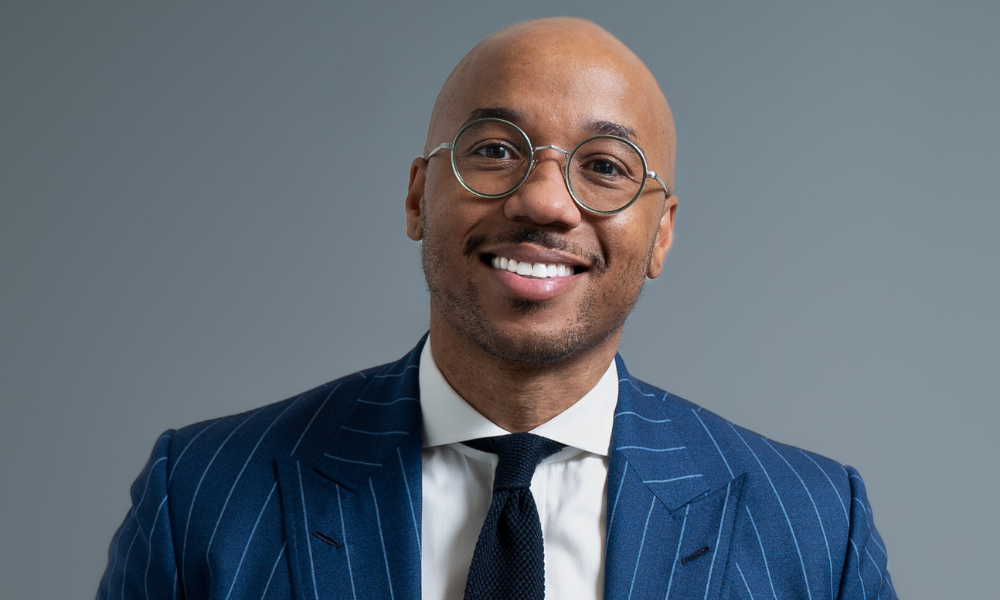Fintellect Task Force head unpacks potential risks and future wins – for both advisors and clients – from evolutionary AI technology

It’s been just over five months since ChatGPT, the artificial intelligence chatbot, was officially released into the wild on the web. Since then, the code-based curiosity has captured the imagination of leaders across countless industries – and that includes the world of financial planning.
“The conversation [about ChatGPT] was robust … It was new technology, a much-hyped technology,” Christopher Dewdney, CFP and chair of the Fintellect Task Force, told Wealth Professional.
The Fintellect Initiative was jointly launched in October last year by FP Canada and the Institut québécois de planification financière (IQPF). The task force – which also includes stakeholders from wealth firms, fintech providers, the academe, and the OSC – aims to explore how new and emerging technologies can enhance the practice of and increase Canadians’ access to financial planning.
Read more: Brace for impact of emerging technologies
“Obviously, there were concerns. How large of a disruption would it be to industry? Would it in fact, replace our jobs as financial planners?” Dewdney says. “But the more we discussed it, the more we saw opportunities with embracing and utilizing the technology.”
Learn what is a typical fee for a financial planner in this article
Blue oceans and black boxes
Through AI-enabled technology, Dewdney says, financial planners can potentially do their work more efficiently, giving them more time to educate and work with clients. It also opens doors for clients to be more efficient when it comes to providing information.
“The financial planning process can be complex and time-consuming, with some tasks being mundane, such as gathering data,” he says. “However, with the help of technology, financial planners can streamline certain aspects of the process, resulting in increased efficiency, a better experience for the client, and more productive time for the advisor.”
ChatGPT might open up blue-ocean opportunities, but it also leads to uncharted waters. One risk comes from the lack of data transparency; users have little, if any idea on where the technology gets the information it bases its outputs on. Aside from potentially misleading consumers, some planners might take it at face value as an accurate, trustworthy source without doing their own due diligence.
Even prior to the Fintellect Initiative, FP Canada has recognized that risk. In 2021, the FP Canada Standards Council introduced new rules requiring CFP and QAFP professionals using financial planning software to have a general understanding of the underlying methodologies and assumptions behind its recommendations. In addition, under the rules, material assumptions, as well as the rationale used in the planning process, must also be documented and clearly communicated to clients.
“One of our taskforce members asked ChatGPT to create a financial plan for him during its early stages. The plan was basic at best, and it had a disclaimer at the bottom encouraging the user to consult a financial planner for more information,” Dewdney says. “He repeated that exercise a month later, and received a far more detailed and robust plan – this time with no reference to a planner.”
In the months since its inception, the ability of ChatGPT to make expert investing decisions and provide optimal financial advice has been debunked multiple times. Regardless, Dewdney says it could become yet another cause of confusion for consumers already inundated with financial information from non-professionals, including finfluencers, and various forms of social media.
Inroads into wealth
ChatGPT-like technology is already making inroads into the wealth industry. In the U.S., Morgan Stanley Wealth has announced plans to implement the technology internally for advisors to ask questions and gain insights from large amounts of content and data. Broadridge Financial Solutions, a wealth tech provider to firms across North America, is also enhancing many of its applications in Canada with GPT-4, the fourth in the series of GPT foundation models created by OpenAI, the company behind ChatGPT.
“When incorporated in a secure and compliant way into the applications financial advisors use, Generative AI capabilities will greatly enhance productivity for financial advisors,” said Joseph Lo, Head of Enterprise Platforms at Broadridge, in a statement to WP.
“Some of the areas our clients are most excited to see this incorporated include: identifying patterns in a customer profile for personalized financial growth opportunities, creative ideas for marketing newsletters and campaigns, increased automation of operational tasks by being able to read and synthesize inbound documents, and even things you might not expect like searching for securities,” Lo said. “In addition, GPT-4’s sophisticated knowledge retrieval capability makes it perfect for us to incorporate into the customer relations systems we use to help us provide answers and support to our clients faster.”
“As the usage of the technology increases, we’re going to see more privacy issues and regulatory issues come to light,” Dewdney says. “What we’re trying to do is get ahead of it – present not only the opportunities, but also the risks and pitfalls to hopefully provide guidance to consumers, regulators, developers and various other stakeholders.”
In the months since its introduction, ChatGPT has crossed the line from the revolutionary to the evolutionary, with several updates and multiple competing applications coming to the market. Dewdney says the Fintellect Task Force is keeping a watchful eye on the technology as it’s only a matter of time before it proliferates across the wealth space.
“It’s definitely in alignment with one of our goals, which is to leverage new and emerging technologies to enable financial planning to be more relevant, inclusive and accessible for all Canadians,” Dewdney says. “There's a limited amount of human capital in the form of financial planners, and a finite amount of time. … We really want to leverage technology to maximize both.”



